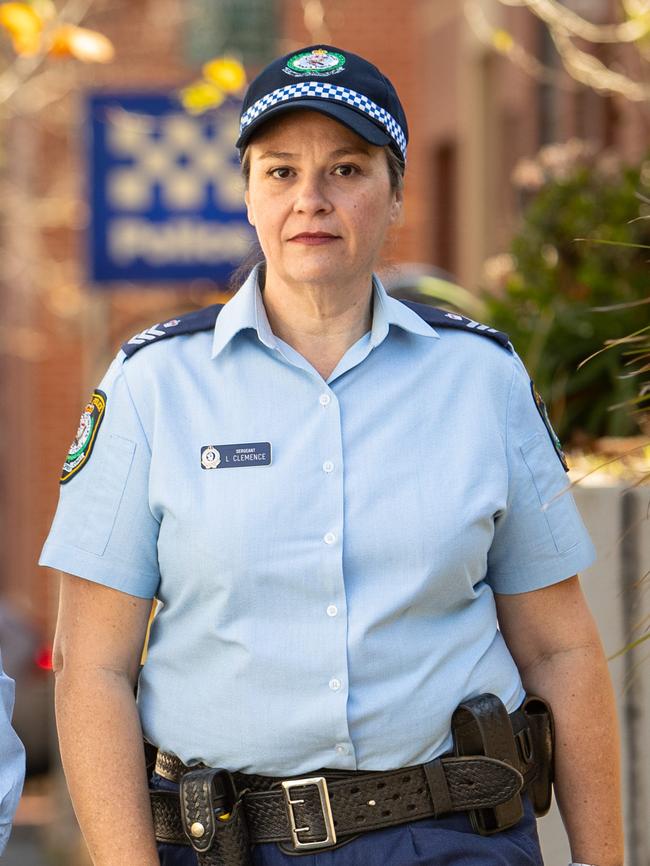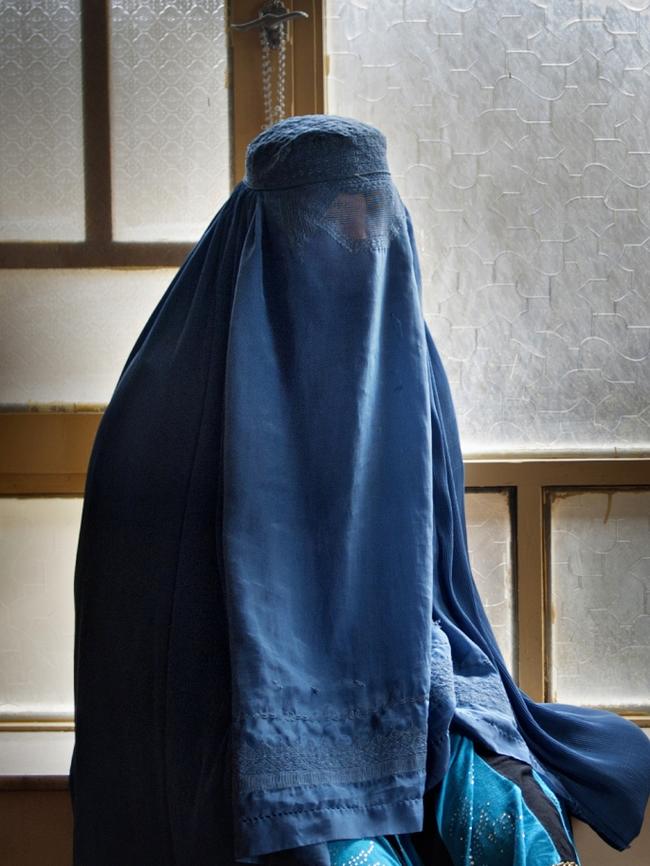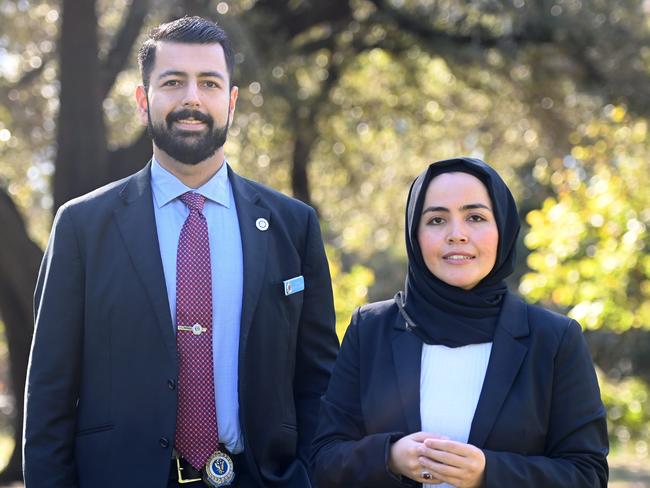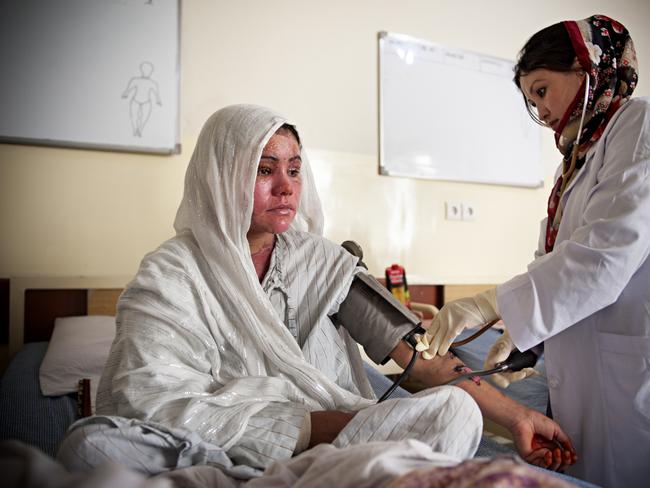How a burner phone rescued a Sydney sex slave
A wife was so enslaved and controlled by her husband it took a burner phone to help her escape from his clutches. Read how police and a case worker plotted her path to freedom.
NSW
Don't miss out on the headlines from NSW. Followed categories will be added to My News.
Exclusive: A wife was so enslaved and controlled by her husband it took a burner phone given to her by authorities to allow her to escape from his clutches.
Now her husband, an interpreter who helped Australian troops during the war in Afghanistan, is locked up in a Sydney jail awaiting trial for alleged crimes against his wife.
Police will allege the man, who was evacuated to escape the wrath of the Taliban, kept his wife as a “slave” at their new home in Australia.
Locked away form the world with no access to money, no phone, no internet, she was allegedly raped every day – sometimes three or four times a day.
Sergeant Lisa Clemence from the Domestic and Family Violence Registry said the case was one of the most horrific she had seen.

“This woman was so beaten down, she had no family, no support system and within her culture to stand up against a male and say ‘No, what you’re doing is wrong’ that’s a very hard thing to do.
“When she was in Afghanistan she lived in the same house as her husband’s mother and father, another married brother and sister and five children.
“She said to his mother about him wanting sex all the time. His mother said that he was the man that is his right and he has permission to do that.
“This is one of the most horrendous cases I have ever seen, not only the physical abuse but the coercive control. She literally couldn’t scratch herself without getting his permission.”
Her crew worked with the woman to get her to safety before arresting the man and charging him with multiple crimes including breaching an AVO.
The couple first settled interstate but moved to western Sydney in February last year.

The woman, who had a case worker as part of her resettlement support, revealed that her husband “controls everything she does, her money, who she calls, who she can see”, Sgt Clemence explained.
The case worked called police and through an interpreter the woman revealed she was “sexually assaulted daily”.
Frightened and unsure, the woman was undecided about making a formal statement, but eventually agreed and was placed in a refuge with her two children.
Sgt Clemence said the case “fell through the cracks a little bit” until it came to the attention of the DV team.
“That’s when we realised from the information she had provided and the fact there had been earlier reports of assault when the couple lived interstate, that she was considered to be at serious threat.”
Sgt Clemence said a detective was assigned the case and Department of Community Justice were called in. The woman’s two children had undiagnosed special needs.
“Even though he was so controlling of her that she wasn’t able to leave the home without him, not allowed make phone calls, no access to money, by this stage because of the special needs children she had gone back to the house because she couldn’t cope on her own with the children,” Sgt Clemence said.

“There was a two week gap from when she first came to our attention to when she gave a statement.”
Sgt Clemence said the following few weeks was harrowing – watching from afar and unable
to help the woman. Her husband now not leaving her side, knowing she had attempted to leave him.
“He would not let her out of his sight after knowing she had tried to leave. Without a statement we couldn’t do anything,” Sgt Clemence said.
“Her case worker managed to get her a burner phone where she was able to hide it from him. The case worker would call her on that to check in on her to make sure still alive.
“After a few weeks he finally went back to work. She texted her case worker and said he is gone, you can come now.
“A taxi was sent to bring her and her children to the police station.
“We managed to get an initial statement off of her where he had sexually assaulted her that morning.
“While she was giving her statement he was ringing her demanding to know where she was.”
The man was arrested and charged with sexual assault and breach AVO and appeared in court the following day where he “tried to claim he didn't speak English”.
Police quickly informed the court he had been an interpreter for the Australian Army.
Bail was refused.
The woman gradually revealed more of her experience to police who then laid additional charges.
The man is now facing four counts of sexual assault and two counts of breaching an AVO.
Sgt Clemence said rape and DV are under-reported to police in Sydney’s Afghan community due to the stigmatism and risk of persecution within their former country and under a Taliban regime and police were committed to understanding the plight of victims, particularly those escaping oppressed regimes.
“Not understanding made it virtually impossible to understand the plight of our victim.
“The system missed her in New South Wales because she was not covered in bruises, bleeding and screaming. She lived a life under a government that made it an offence to accuse your husband of DV or rape. Understanding how the system let her down is the only way her case was resolved through the good work of our team.
“If we can solve such a difficult complex case then we have a blueprint for the future and how we approach victims when the circumstances are beyond difficult.”
A new life but the same old horrors
In their homeland women have their lips sliced off for speaking ill of their husband, their nose cut off with a kitchen knife for asking for a divorce.
Some set themselves on fire to be less unattractive to their husband, desperate to stop an unrelenting rapist under the guise of a husband.
For women from Afghanistan, especially under the Taliban, speaking out against an abusive partner can quite literally be a death sentence, or a public stoning.

Is it any wonder the women who have started a new life in suburban Sydney and across the country might choose to keep their pain behind closed doors?
“What we see and hear about is just a snippet of what is going on in the villages and places outside of Kabul where there is no media,” Zohal Azra told The Saturday Telegraph.
That’s why she has teamed up with NSW Police to teach women and men that Australian laws and authorities won’t tolerate domestic and family violence. She has helped dozens of women from her community get the support they need to build themselves a better, safer life at home.
“I will not hide from the fact that it is very difficult for a woman because of the shame and stigma. If you speak up at home with your family or the community, many don’t actually support you, some will even shame you,” Ms Azra, who is the co-founder of charity Huma Media said.
“I’ve had this case where a very well known person actually reached out to me and she explained how her husband was abusive but she was told to shush when she tried to talk about it to her mum.
“So it will take time to educate people to tell them that there’s actually different ways of doing things, ways of changing things and having a better life.”
After just a few minutes hearing stories from Ms Azra – who was nine when her family fled the persecution of the Taliban – about the complexities of religion, culture, expectation and shame, new light is shed on why women from some foreign countries may be sceptical about truly being protected and supported.

She has teamed up with Parramatta police officer Ahmad Abawi to reach her community through face-to-face contact, but also by a powerful video produced by Huma Media for men and women outlining what support is available and what laws we have to protect them.
How could a woman, for example, so used to being beaten and raped by her partner, possibly fathom that being kept away from other women, without money or a mobile phone, possible understand she is being coercively controlled?
“The laws are something we try to help explain to them,” Ms Azra said, adding that having a police officer who understands the language and culture has been a blessing.
“I’m just a helper,” Senior Constable Abawi said.
“Zohal reached out to me and asked if I would be interested in assisting in the project discussing domestic and family violence. The big goal is to build a more inclusive Australia for people from the Afghan community.
“In the video we have police, a female judge, psychologist, lawyer speaking in Dari and we look at a range of issues including the unequal power dynamic between men and women specifically because of cultural norms because that discourages people from reporting domestic violence,
“Honour and shame, that holds very high importance in Afghan culture. That coupled with social issues such as language barriers, a lack of knowledge about rights of victims and general legislation issues.
“A lot of people that have come to Australia are dealing with trauma and mental health and a lot of people don’t have an understanding of the rules, the law and the rights that they have as citizens.”
“Sadly a lot of Afghan refugees since the fall of Kabul in 2021 have a very difficult relationship with law enforcement. We are trying to break down the barriers down here to help them. We are getting the message to the community members that we can help them if they are in danger.”





